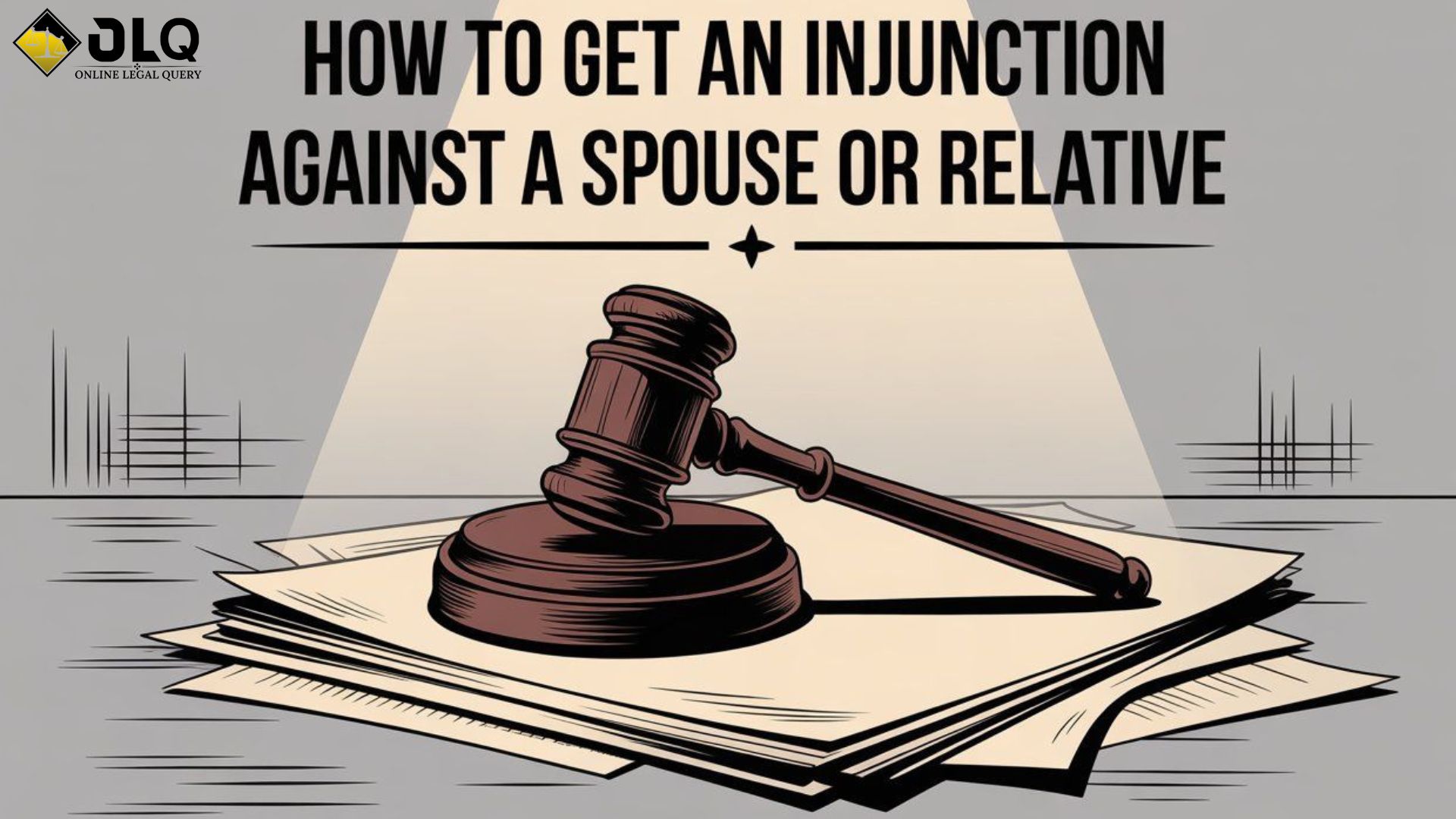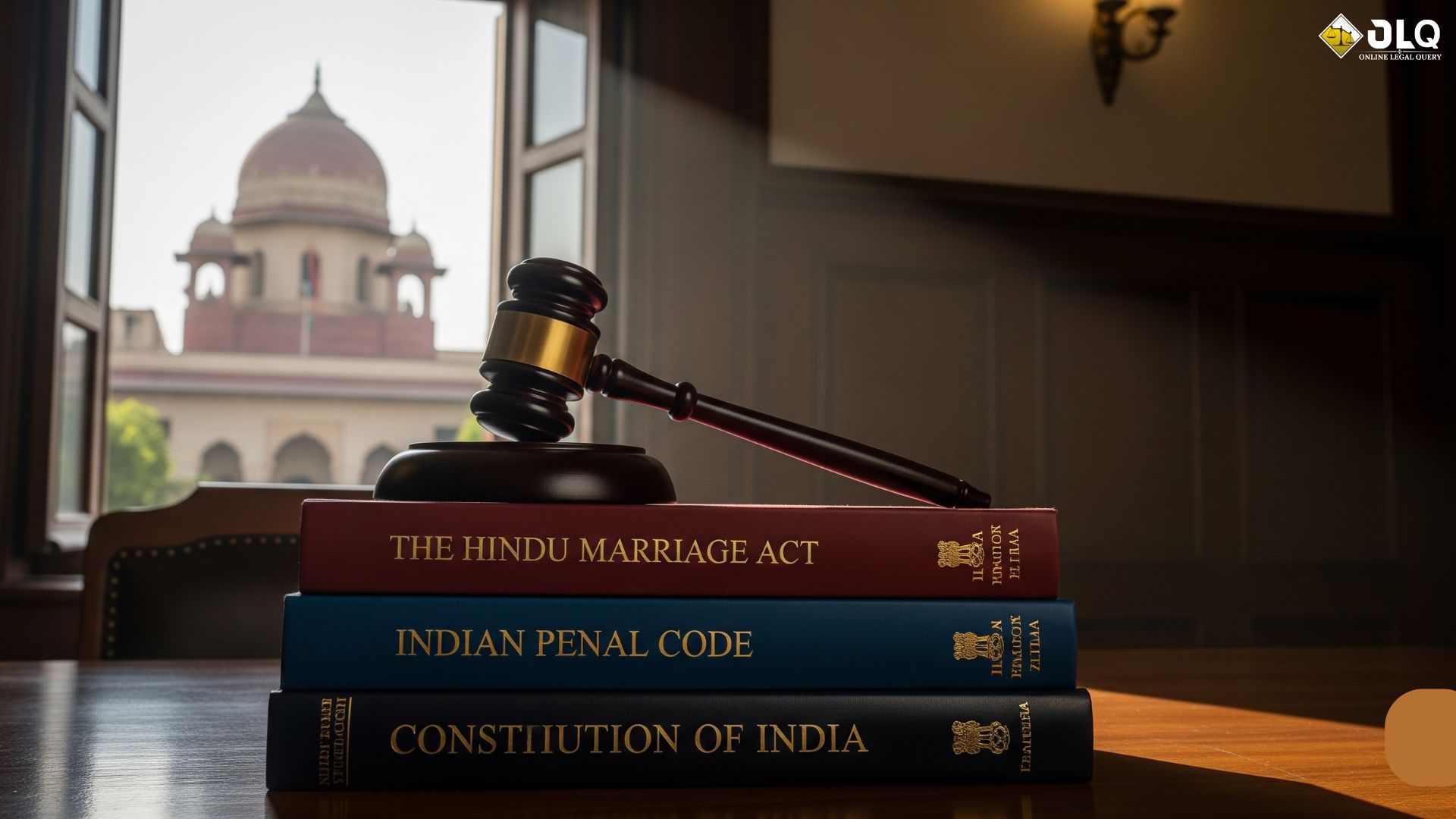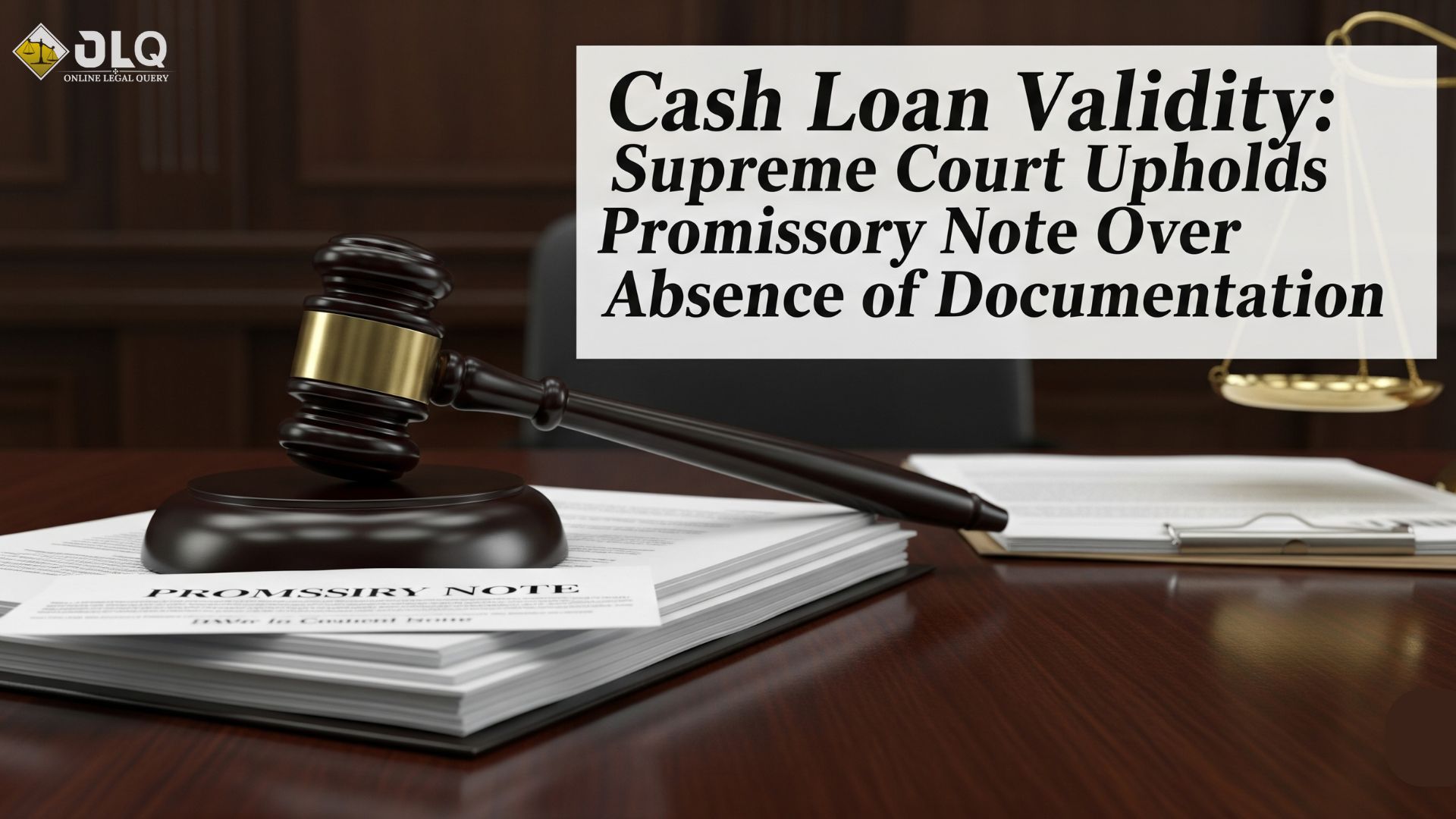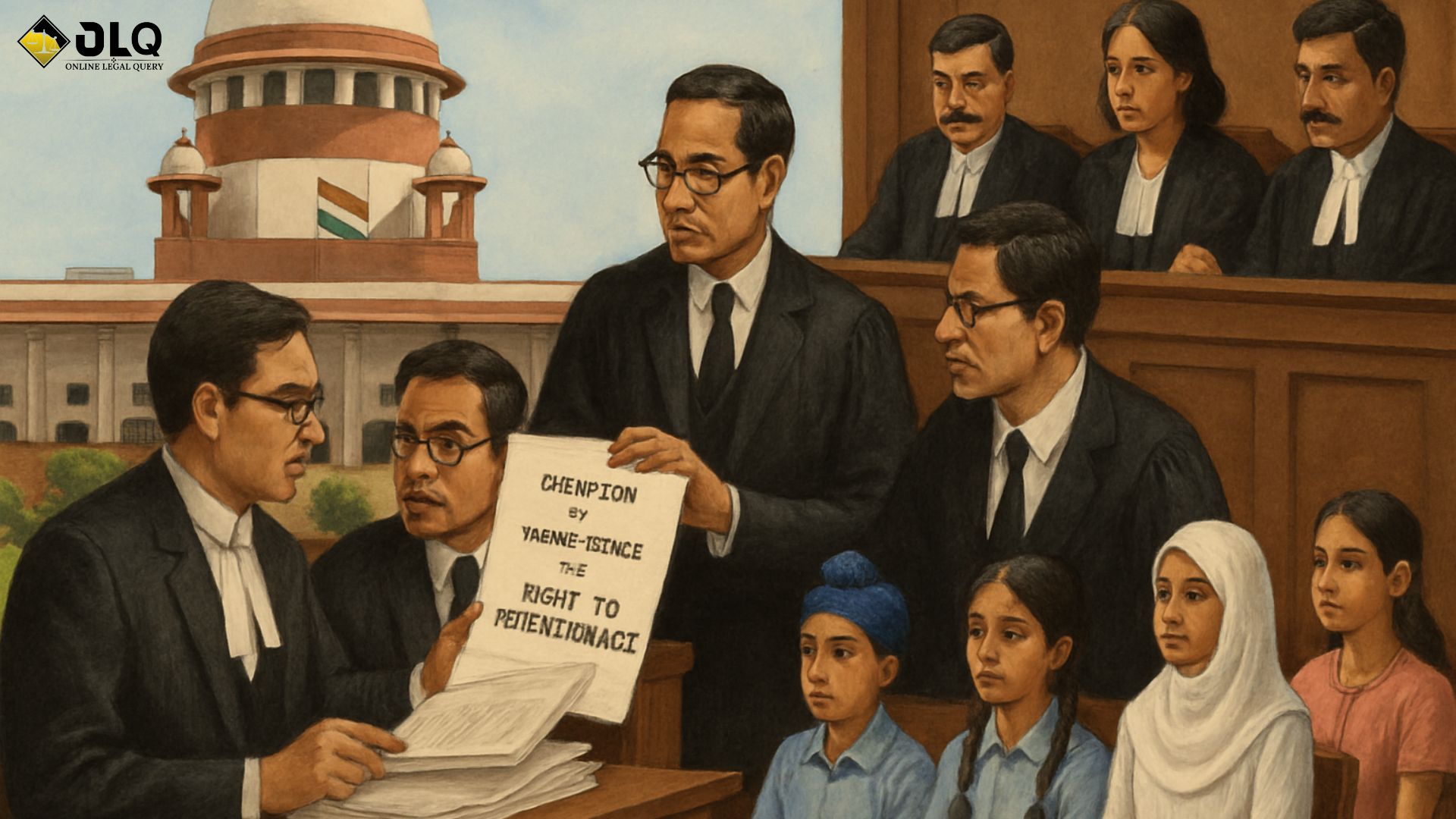Injunctions are powerful legal tools that serve as a protective shield for individuals facing threats, harassment, violence, or unjust interference—especially within families. In India, many cases of domestic abuse, coercion, or threats arise not only from strangers but from within the home—from spouses, in-laws, or other relatives.
If you are facing such a situation, the law allows you to seek an injunction order—a court directive that restrains the other party from continuing the harmful behaviour. This blog explains what injunctions are, when you can seek one against a spouse or relative, and the legal process involved in obtaining such protection under Indian law.
WHAT IS AN INJUNCTION?
An injunction is a court order that prohibits a person from doing a specific act (prohibitory injunction) or requires them to do something (mandatory injunction). It can be temporary (interim) or permanent, depending on the urgency and nature of the threat.
When issued in a family context, an injunction may direct a spouse or relative to:
• Stay away from the complainant
• Stop threatening, harassing, or contacting them
• Not enter a shared household
• Refrain from selling or interfering with joint property
KEY GROUNDS FOR SEEKING AN INJUNCTION AGAINST A SPOUSE OR RELATIVE.
1. Domestic Violence.
One can obtain an injunction under the Protection of Women against Domestic Violence Act (PWDVA), 2005 because of physical, emotional, sexual, verbal, or financial abuse.
2. Threat of Hurting or Harassing.
Even without any physical violence, there could be recurring threats and black mail or stalking of a spouse or a family member so it may be reasonable to seek the court injunction.
3. Property Disputes.
In case one of the relatives or the divorced spouse out of vengeance are trying to forcedly take control of the property or even selling it off or destroying the common property, civil court can grant an injunction restraining the illegal retention or sale of property.
4. Matrimonial Proceedings.
In divorce proceedings, or at any other time there is danger to the safety, privacy or property of a party, either party can apply to the court to grant some form of an injury to prevent the likelihood of harm to them.
TYPES OF INJUNCTIONS RELEVANT IN FAMILY MATTERS.
- Temporary Injunction: Provided in a case that is pending, in order to guard the applicant against imminent injuries.
- Permanent Injunction: Adjudged at the end of a trial, to enjoin injurious acts forever.
- Ex-Parte Injunction: Being issued without hearing the other side of the case and in cases of urgency.
STEPS TO GET AN INJUNCTION.
1. Seek the advice of a Lawyer
Consult with a family attorney/lawyer or civil litigation professional who will consult on your case and advise on the appropriate law vehicle (a family court or civil court).
2. File a Petition/Affidavit
The putative spouse will then petition the court by establishing the nature of the threat, a record of previous threats, and why the situation necessitates the intervention of the court through his or her lawyer. The case is built with the help of such supporting documents as medical reports, messages, FIRs, or photographs.
3. Present the Petition in the Court
The injunction petition should be filed in the right district court or family court depending on the nature of the dispute.
4. Interim Relief & Court Hearing
Such a situation that requires urgent protection may be awarded interim or ex-parte injunction by the judge. A notice to respond will be given to the other party.
5. Final Order after Hearing of Both Parties
On listening to both sides, and looking at evidence, the court might grant a temporary or permanent injunction as required.
6. Enforcement
When one has violated the order of the injunction, it could result in legal proceedings of contempt of court, arrest, or any other proceeding.
LEGAL AIDS.
1. Protection of Women from Domestic Violence, 2005 (PWDVA)
- Section 18: Allows women to apply Protection Orders so that the respondent does not commit any act of domestic violence or approach the victim of abuse.
- Section 19: Gives the court power to order a restraining order against the spouse or relative so that he, she or it is stopped to enter the cohabited household or to offer an alternative dwelling place.
- Section 23: Authorizes the grants of interim or ex-parte relief by the court by the court in urgent cases.
2. Code of Civil Procedure, 1908 (CPC)
Order 39, Rules 1 and 2: Allows civil courts to grant temporary injunctions in situations where there is a threat of irreparable harm or illegal interference with rights.
Section 94: Empowers courts to prevent injury or annoyance through preventive civil remedies
3. Indian Penal Code (IPC)
- Section 506: Criminal intimidation – applicable where there is a threat to life or safety.
- Section 509: Insulting the modesty of a woman – may support a claim for injunction along with criminal proceedings.
4. Hindu Marriage Act, 1955 / Special Marriage Act, 1954 / Other Personal Laws
During divorce or judicial separation, courts may issue restraining orders or interim protection to prevent further mental or physical harm to either spouse.
- Section 26 (HMA): Deals with custody and protection of children, where injunctions may be sought to prevent interference by the other parent.
- Section 27 (HMA): Provides relief regarding jointly owned property, allowing injunctions in disputes over possession or sale.
5. The Indian Majority Act, 1875 and Guardians and Wards Act, 1890
These may be invoked if children are at risk due to actions by a spouse or relative. Courts can issue injunctions protecting the welfare and custody of minors.
FAQs.
Q1. Is it possible to take an injunction against the husband or in laws to harass a wife?
Yes. A woman is able to obtain a protection order under the Domestic violence Act under circumstances of harassment, threats or violence.
Q2. Is it possible that a husband can sue a wife or her family members with an injunction?
Yes, men can get relief also in civil courts against a threat, defamation or problem related to property.
Q3. What is the length of time of obtaining an injunction?
When promptness is of priority, injunction by the courts can be granted on an interim or ex-parte basis in a matter of days. The final order can also take more time based on court hearings.
Q4. What happens if the injunction is violated?
Violation can lead to police action, arrest, or contempt of court proceedings.
Q5. Does one need to file a police complaint to obtain injunction?
Not always. One needs to go to a civil/ family court and seek an injunction, but an FIR does prove beneficial in such cases.
CONCLUSION.
Injunctions are not just legal orders; it is a protective measure set to defend those subjected to emotional or physical or property type of family abuse. The legislature has provided solutions, on time, to protect your dignity and safety, be it you are at the receiving end of violent treatments at home and interference with your property or being harassed psychologically.
It is not a matter of breaching ties as it is a matter of creating boundaries through seeking an injunction. In case you are or anyone you know feels unsafe because of the behavior of a spouse or a relative, you should consider legal intervention as potentially the first step to peace and protection.








